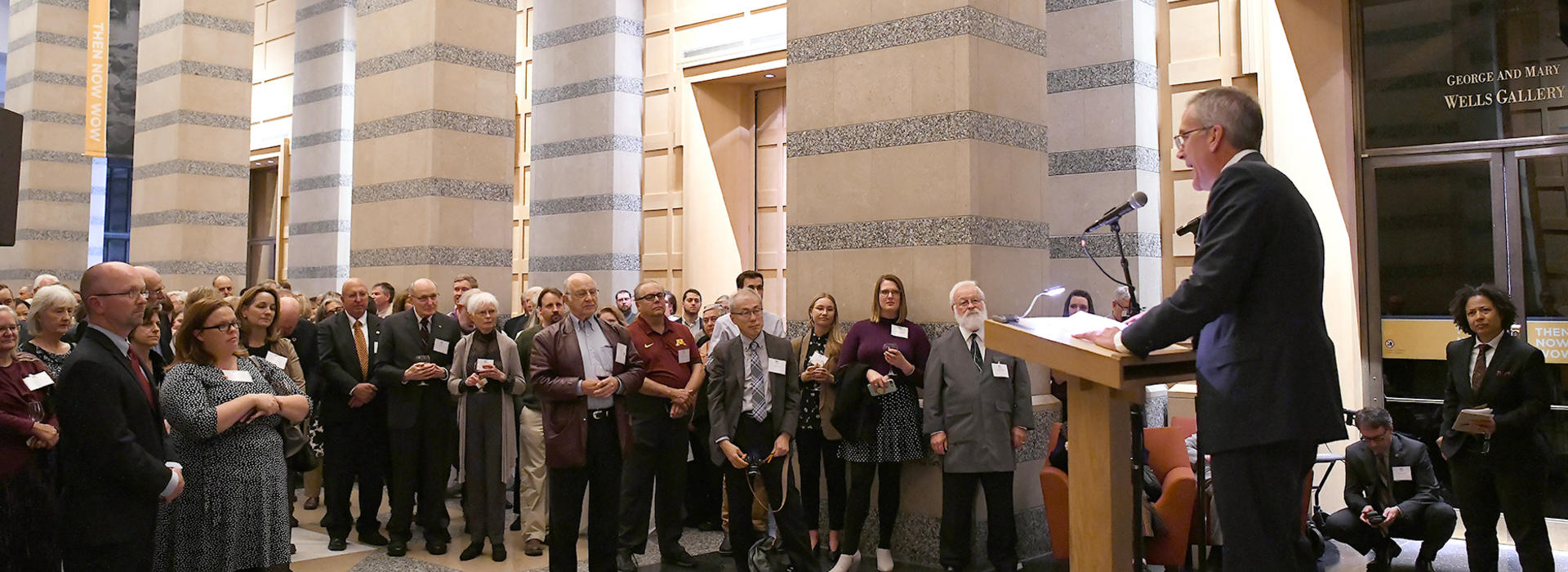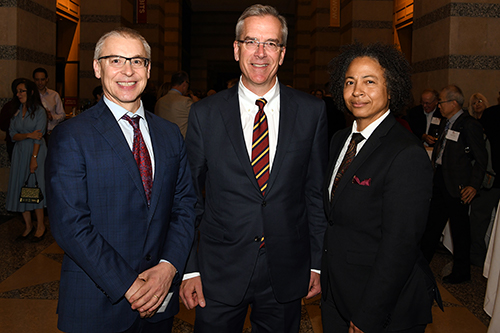
Department of Family Medicine and Community Health Celebrates 50 Years
Reaching a milestone of 50 years is no small feat, but the Department of Family Medicine and Community Health (FMCH) at the University of Minnesota Medical School is celebrating much more than time.
On Oct. 11, faculty, students, trainees, alumni and supporters, along with Medical School and University leadership, kicked off a year-long celebration to honor the department’s 50 years of advancing the practice of family medicine.
“Despite the continuing innovations throughout the decades, FMCH has remained firmly committed to providing full-spectrum, whole-person care to individuals, families and communities, particularly those in underserved areas,” said Jim Pacala, MD, MS, who leads the department. “This year, we are celebrating our success and legacy, so far, in the specialty of family medicine.”
Success takes time, and FMCH has used it wisely. Now, after 50 years, it is first in the country in total number of residency graduates—more than 2,000 to date. Of those graduates, about 70% choose to stay in and serve Minnesota, working in nearly 80% of all counties.
Meeting a Demand
In the beginning, FMCH formed to meet demands—both from legislators and the public at large. The medical industry after World War II, consumed with growth in sub-specialization, needed more generalists, and the public wanted healthcare at lower costs and with better access, especially in rural areas and inner cities.
That’s when, in 1965, president of the Minnesota Academy of General Practice, Herb Huffington, MD, wrote to the dean of the Medical School about the need to train more general practitioners in Minnesota. A subcommittee of the Medical School convened the following year, issuing a 35-page report that detailed the need for additional family practice training.
From that report and continued discussions, FMCH began in 1969, becoming one of the first family medicine residency programs in the country.
Leading at First
The department continued that trend of “firsts” by establishing the Medical School’s first longitudinal integrated clerkship, the Rural Physicians Associate Program, in 1971. Today, the program is internationally renowned, providing third-year medical students the opportunity to live and train in rural communities across Minnesota and western Wisconsin for nine months.
In 1977, FMCH added the Program in Sexual Health, which now houses one of the largest clinical, teaching and research institutions in the world specializing in human sexuality. By 2007, Eli Coleman, PhD, became the Chair in Sexual Health, which is the first endowed position of its kind in the nation.
“The department has pioneered many firsts,” Pacala said. “Our willingness to go beyond the expected and to take risks is partly what makes our profession and specialty so vital. It has helped us to make our mark in the community, and it has ensured our future.”
Today, the department sponsors eight of the 11 family medicine residency programs in the state where roughly 160 residents, along with faculty, perform more than 200,000 clinic visits annually in both urban and underserved areas.
Advancing for the Future

“The department’s future will be focused on two areas. One is to ensure that FMCH continues this tradition of supplying the state with its family physicians,” Pacala said. “Two is moving further along in our relentless mission to improve the quality of healthcare for our patients that is patient-centered and holistic.”
To do that, Pacala says the department will rely on its outstanding faculty, whose work in research has ranked the department fourth in the country in funding from the National Institutes of Health among family medicine researchers. Their studies focus on health disparities, health care delivery and population health.
“The future of family medicine is promising, and our faculty research is paving the way for more effective, accessible healthcare,” Pacala said. “The most efficient and high quality healthcare systems in the world have one basic operating principle - a strong primary care workforce that provides the vast majority of preventive, acute and chronic disease care across the lifespan. Despite so many practitioners absorbing the top-level tasks, we still need primary care physicians to treat a wide array of conditions while also serving as a trustworthy source of knowledge and compassionate care for every patient.”
Follow the celebration all year long by searching #FMCH50 on social media, and share your experiences and stories in honor of FMCH by visiting the department’s anniversary page.